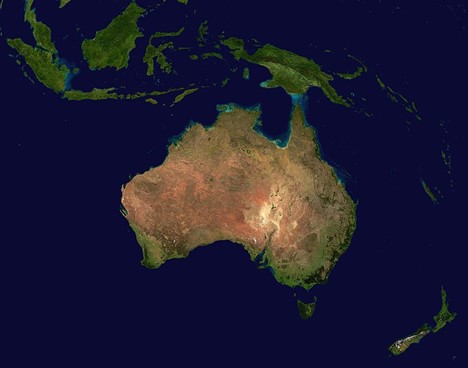On 7 October, George Mason’s Ellen Laipson and Michael Morell held a virtual discussion with former Deputy Director of the FBI and current Distinguished Visiting Professor at the Schar School, Andrew McCabe. Toward the beginning of the event, Morell asked for McCabe’s reaction to John Ratcliffe’s – the current Director of National Intelligence – decision to selectively declassify intelligence that shows a Russian assessment that the Clinton campaign purposefully played up the Trump-Russia connection in 2016. McCabe answered that the decision “shattered norms,” and inappropriately removed bits of intelligence from the “natural analytical process,” for political purposes. He is certainly not alone in his reaction.
Though McCabe was correct in his view of the damage caused by selecting intelligence piecemeal for political aims, Ratcliffe is certainly not the first US IC official to do so. For decades, politicians and directors of various intelligence agencies have willfully engaged in this kind of chicanery. The difference in this case, however, is the rest of the story. The point here is not to support one explanation or the other. Instead, we should understand that no explanation can be reasonably determined if unverified intelligence is extracted piecemeal with political motivations in mind. A few strands of collected information regarding a Russian assessment of the Clinton campaign’s political strategy does not establish the validity of the assessment, the purpose for making it, whether or not it fits with US conclusions determined a priori. Ratcliffe’s targeted declassification is uniquely dangerous because of the nature of Ratcliffe’s role in the intelligence community, the context surrounding the intelligence, and the timing of the declassification.
Firstly, the Intelligence Reform Act created the ODNI in 2004 as a means to integrate disparate elements of the US intelligence community. As DNI, Ratcliffe’s role is to advise the president on intelligence matters, coordinate activities among the intelligence community, manage the National Intelligence Program budget, and other tasks. Nowhere on the ODNI Fact Sheet can one find a mission that includes publicizing intelligence estimates of foreign adversaries. Perhaps, the DNI believes that his actions do not reflect the next step in a politicization process that began in earnest under his (acting) predecessor, Richard Grenell. Even if given the benefit of the doubt, it is unreasonable for anyone in Ratcliffe’s position to not understand, at minimum, the political optics of these releases. His behavior stands in stark contrast with the “entirely apolitical” conduct promised during his confirmation hearings.
Secondly, it is worthwhile to recapitulate, if only briefly, the geopolitical and intelligence environment in which the US gathered this information, what the information says, and why it is relevant now. Throughout campaign season in 2016, Russia interfered in the presidential election through attempts to probe election infrastructure, social media disinformation campaigns, hacking and releasing data from the Democratic National Committee, and making use of ties with officials in the Trump campaign orbit. Throughout the course of the campaign, the Russians sought to erode public faith in the electoral process, and Moscow had a clear preference for the election of then-candidate Donald Trump.
The material included in Ratcliffe’s disclosures must be viewed in the context of both these goals. Russia stood to lose nothing – and gain much – by continuing to pursue their initial policy goal of fomenting discord and perceptions of inefficacy amongst the US electorate. However, just as the Russian government had an interest in stirring up fears of a democratic conspiracy, the Clinton campaign had a political interest in highlighting the malevolent appearance of Trump and his team’s connections with Russian officials.
Lastly, the timing of the releases exerted influence on the ongoing presidential election. Again, even if the motivations of the DNI are left aside, the electoral effect of declassifying politically charged intelligence is undeniable. President Trump is already on record lamenting the announcement of Attorney General Barr that the Durham investigation will not be released until after the election. Clearly, there is an ongoing effort to tie democratic nominee Joe Biden to the investigation of the Trump campaign in 2016. Given that goal, any new document releases breathe life into Trump’s perceived political fortunes, and Ratcliffe has shown himself to be a willing contributor to this effort. Though most pollsters and election watchers doubt the electoral impact of these so-called “October Surprises,” they do not argue that such revelations do not move the polls at all. Considering Trump’s narrow margin of victory over Clinton in key battleground states in 2016, last-minute disruptions should not be discounted. In any event, we should not evaluate Ratcliffe’s maneuvering solely on the basis of its impact on the election; we should hold political appointees at the helm of apolitical institutions to a normative standard of behavior regardless of expected effects.
McCabe, and all of those who share his position, are certainly correct that Ratcliffe disregards even the façade of apoliticism, but politicized intelligence is not a new phenomenon. What is new, however, are the particularities of this latest episode. By compounding the politically fraught – and geopolitically hazardous – issue of Russian election interference, further distancing the DNI from its intended place in the intelligence community, and staging the declassifications during the final throes of a contested election cycle, Ratcliffe did serious harm to his personal reputation, his agency’s standing, and the American people.
Connor Monie is a PhD student in political science at the Schar School of Policy and Government. He holds a bachelor’s degree in government and international politics with a concentration in international relations and a master’s degree in international security, both from George Mason University. His research interests center on interstate alliances, including alliance formation, management politics, and wedge dynamics.
Photo can be found here.




